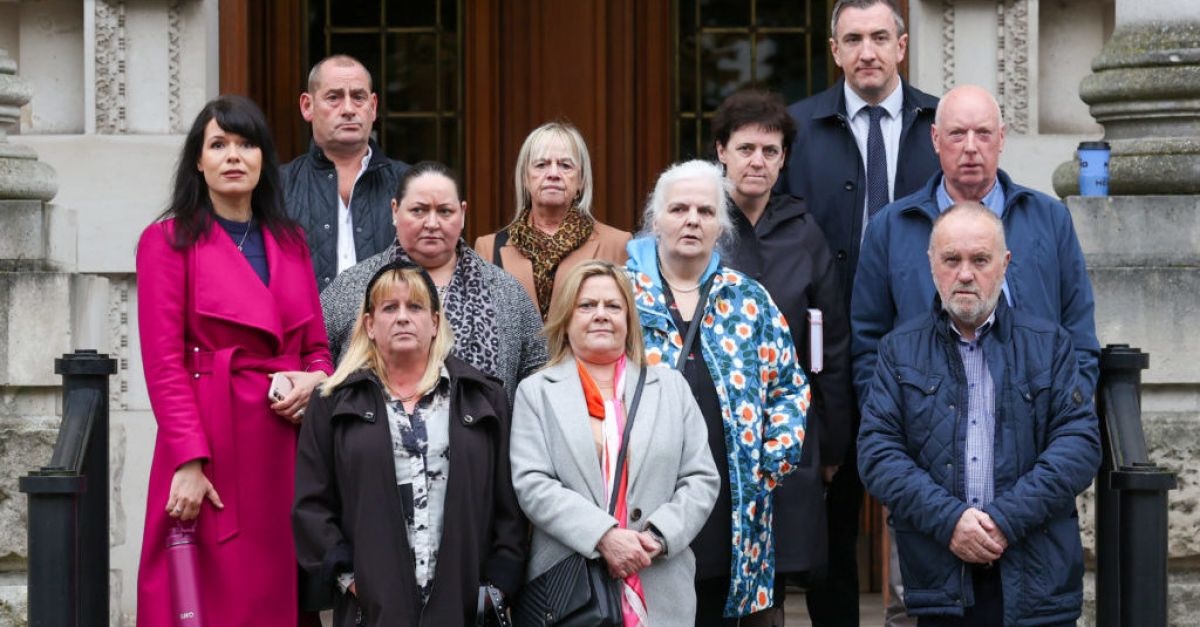
In a legal battle set to run for at least five days, Belfast High Court has heard that victims of the conflict in the North are being put through a secondary trauma by new Tory legislation.
The ‘Northern Ireland Troubles (Legacy and Reconciliation)’ Bill has been described as a gigantic cover up of Britain’s war crimes in Ireland. The British government has characterised it as simply an attempt to ‘draw a line’ under the conflict.
Victims organisations, political parties and the Dublin government are all fiercely opposed to it. A raft of challenges to the Act have been brought by some of those who either lost loved ones or were injured in the conflict.
Collision between the British state and loyalist death squads is suspected in many of the cases which now face a guillotine date next May.
Proceedings issued by Martina Dillon, John McEvoy and Lynda McManus have been identified as lead cases in the legal battle.
Ms Dillon’s 45-year-old husband, Seamus, was shot dead in a loyalist attack at the Glengannon Hotel in Dungannon, County Tyrone, in 1997.
Mr McEvoy survived a loyalist shooting on the Thierafurth Inn in Kilcoo, County Down, in 1992 which claimed the life of 42-year-old Peter McCormack.
Ms McManus’s father, James, was among those wounded in the Sean Graham bookmakers massacre earlier in the same year. Five people were murdered when loyalist gunmen opened fire inside the betting shop on the Ormeau Road in south Belfast.
A senior barrister for the families contends that the new legislation removes access to justice and does not comply with Article 2 of the European Convention on Human Rights.
In her statement Ms Dillon described how she has dedicated her entire life to achieving truth and justice.
“There is no such thing as historic grief,” she said.
But while her husband’s suspected murderers can sleep safely in their beds, she continues to endure sleepless nights over being deprived of justice and accountability.
Her belief has been reinforced by any potential amnesty without requirement to show contrition in an account of the killing which could be self-justifying or even triumphalist, the court heard.
Mr McEvoy expressed similar hurt that those responsible for the gun attack which changed his life and left him suffering from post-traumatic stress disorder could be free from prosecution.
In her statement, Ms McManus suggested an attempt to conceal the truth and deny justice over the Sean Graham atrocity.
The court was told that the terms for offering conditional amnesties were one of the most “legally offensive” aspects of the Act.
“All that is required is a truthful, incriminating account,” said the barrister for the victims, John Larkin.
“There does not have to be any expression, sincere or otherwise, of remorse and there doesn’t have to be any acknowledgment of wrongdoing in the moral sense.
“The account can be accompanied by triumphalism, crowing and glorification in the criminal act.
“In the context of a measure which is badged as promoting reconciliation, the structure for immunity is fundamentally antithetical to any proper approach to reconciliation and actively harms reconciliation.”
![[Irish Republican News]](https://republican-news.org/graphics/title_gifs/rn.gif)
![[Irish Republican News]](https://republican-news.org/graphics/title_gifs/harp.gif)

